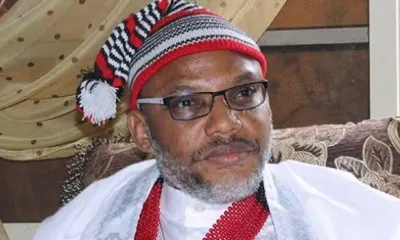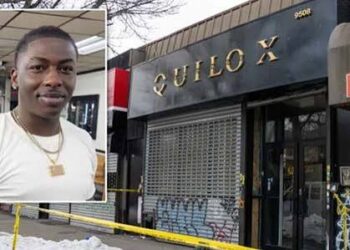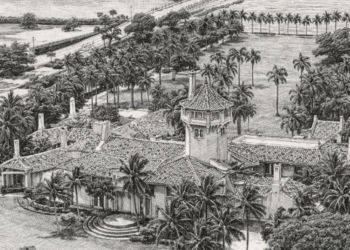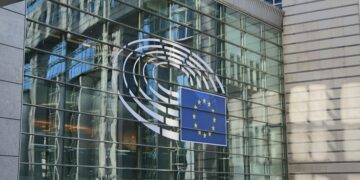In a surprising courtroom drama that upended his long-running terrorism trial, Nnamdi Kanu, the leader of the Indigenous People of Biafra (IPOB), personally sacked his entire high-profile legal team on Thursday, seizing his own defence in a high-risk gambit that threatens to plunge the proceedings into chaos.
The moment of high theatre unfolded shortly after Kanu was brought into the courtroom. In a hushed conversation, he informed his lead counsel—former Attorney General of the Federation Godwin Kanu Agabi—that his services were no longer required, physically taking his case file in a symbolic gesture that dissolved his legal defence. Upon the judge’s inquiry, Kanu confirmed he would represent himself, defiantly rejecting an offer of a court-appointed lawyer.

A Strategic Implosion or a Calculated Move?
The move forced the immediate, collective withdrawal of all the Senior Advocates of Nigeria (SANs) representing him, leaving the court without a defence team on the very day Kanu was scheduled to open his case. The IPOB leader then immediately pivoted to a familiar, confrontational strategy, repeatedly shouting that the court had “no jurisdiction” to try him.
This tactic effectively halts the substantive defence before it can begin, refocusing the legal battle on the procedural and political legitimacy of the trial itself—a battle he has waged since his controversial arrest.
Why It Matters
Kanu’s decision to become his own lawyer is a political performance of ultimate defiance. By firing a figure as esteemed as a former AGF, he is sending an unambiguous message to his followers: he trusts no one but himself to lead this final stand, and he rejects the very authority of the Nigerian state to judge him.
While this dramatizes his persecution narrative, it is a perilous legal move. He is now a lone defendant, without formal legal training, facing the full might of the state’s prosecution. This gambit may win him a short-term propaganda victory in the court of public opinion, but it risks a long-term legal defeat in a court where procedure and evidence, not political declarations, ultimately determine the verdict.
















